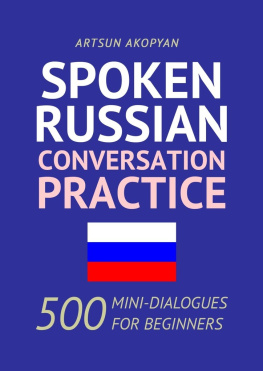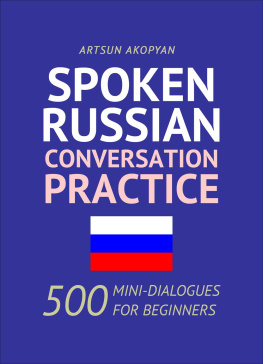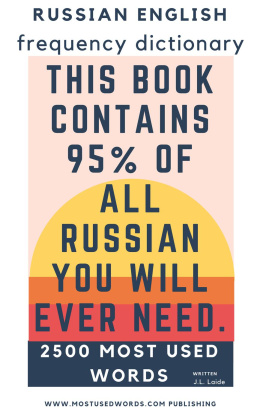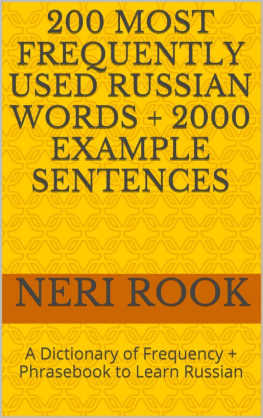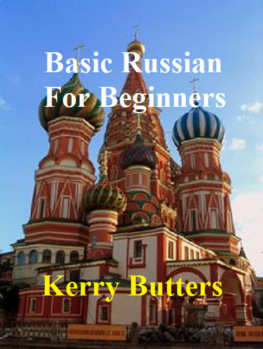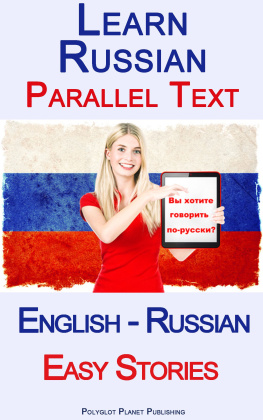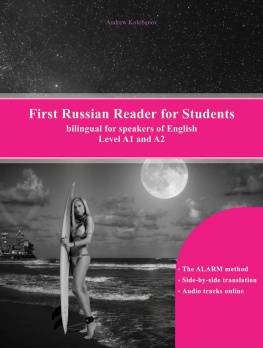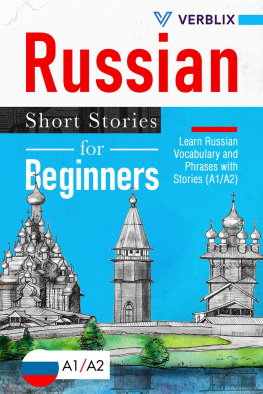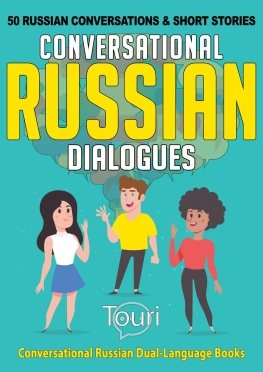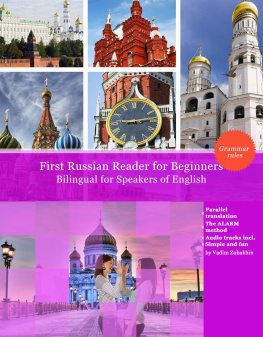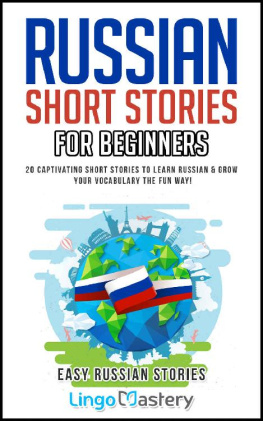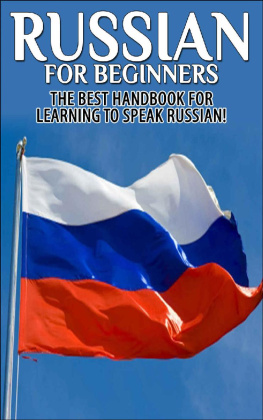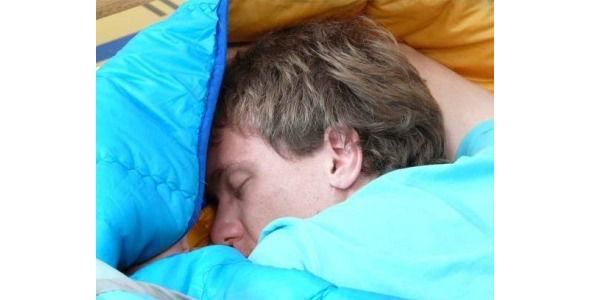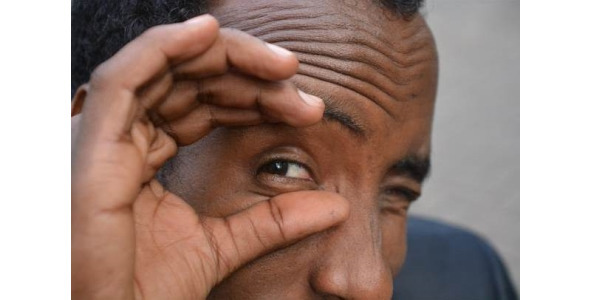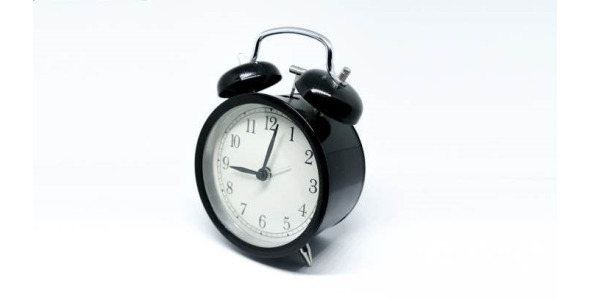Spoken Russian Conversation Practice
500 Mini-Dialogues for Beginners
Artsun Akopyan
Artsun Akopyan, 2020 ISBN 978-5-4498-7879-3 Created with Ridero smart publishing system
Introduction
Are you trying to learn Russian? The illustrated book
SpokenRussian Conversation Practice: 500 Mini-Dialogues for Beginners allows you to greatly expand your active vocabulary. It consists of
500 short dialogues on everyday topics interconnected by meaning and contains about
1,800 commonly used Russian words, word forms and word combinations. A list containing the new words along with their transcription and translation into English follows each dialogue. To reinforce learning,
revision tasks are offered after each topic. This tutorial is intended for
beginning and
intermediatelearners of Russian.
About the Author
Artsun Akopyan is a writer and freelance translator based in Russia.
About the Author
Artsun Akopyan is a writer and freelance translator based in Russia.
He worked at a high school teaching Russian and at a university teaching English. His publications include books for English language learners, short stories and articles, translations of fiction and nonfiction books from English into Russian.
Conventions Used in This Tutorial
The dialogues are numbered from to . Each dialogue in English is followed by its Russian translation. New Russian words in dialogues are highlighted
in bold and translated into English below the Russian version. Base forms of Russian words are included in brackets:
() it is getting light. The accent is marked by the sign over the stressed vowel.
The accent mark is not used in the Revision sections. If you want to look up a Russian word in an online dictionary, use the base form without the accent mark (e.g., ). In English, dialogues are surrounded by quotation marks: ABC. In Russian, every new line of a dialogue starts with a dash: ABC.
Waking Up ()
1
Its getting light already! Good morning! Morning!
! ! !
already(base form: ) its getting light(base form:) good, kindmorning2
Is he asleep? Yes. !
he()sleeps, is sleepingyes()wake (someone)()him3
Is she sleeping? Yeah. !
he()sleeps, is sleepingyes()wake (someone)()him3
Is she sleeping? Yeah.
Wake her up!
? . !
sheher
4
Sh! Shush! Why are you shushing me?
! ! ?
sh()shushwhyyou (singular)()(you are) shushingon, in, at()meshushing me5
Do not wake her up. I wont.
. .
, ! .
()wake upsleepyheadIhave woken up, am awake7
Have you been awake for a long time? No.
()wake upsleepyheadIhave woken up, am awake7
Have you been awake for a long time? No.
Ive just woken up.
? ..
long ago, for a long timenoonlywhat, thatjust
8
How long have you been awake? For an hour.
? .
how()(you) sleep(you have been) not sleeping, awakein, atflow()hourfor an hour9
What time did you wake up? I woke up at seven in the morning.
=inhow muchwhat time()(you / she) woke upseven()(in the) morning10
Did you have a good sleep? Yes, I did.
? .
()had a good sleep11
Did she wake up at seven? Nope.
()had a good sleep11
Did she wake up at seven? Nope.
She overslept.
? ..
()overslept
Revision ()
Translate the dialogues from Russian into English. ( .) ! ! ! ? . ! ? . . , ! . ? .. ? . ? . ? . ? ..
Translate the dialogues from English into Russian. ( .) Its getting light already! Good morning! Morning! Is he asleep? Yes. ( .) Its getting light already! Good morning! Morning! Is he asleep? Yes.
Wake him up! Is she sleeping? Yeah. Wake her up! Sh! Shush! Why are you shushing me? Do not wake her up. I wont. Wake up, sleepyhead! Im awake. Have you been awake for a long time? No. Ive just woken up.
How long have you been awake? For an hour. What time did you wake up? I woke up at seven in the morning. Did you have a good sleep? Yes, I did. Did she wake up at seven? Nope. She overslept.
Getting Up ()
12
Are you not sleeping? Get up! I dont want to!
? ! !
()get up()want13

